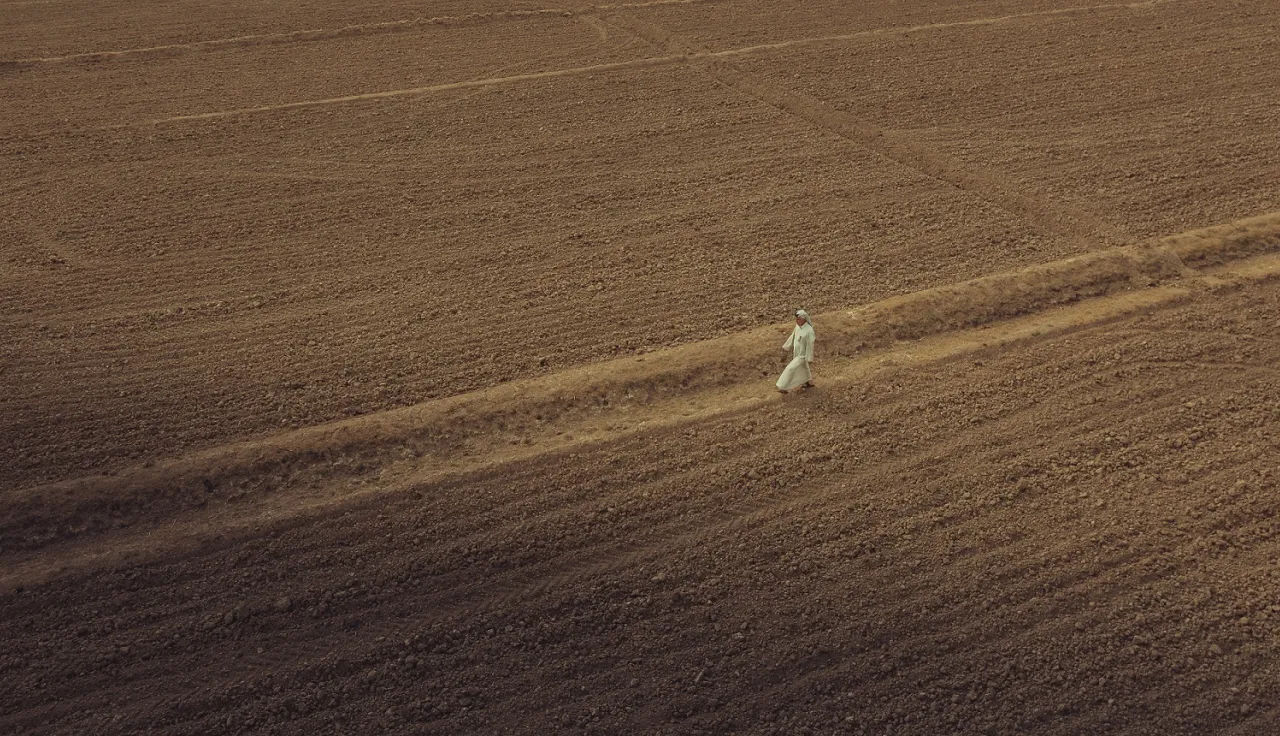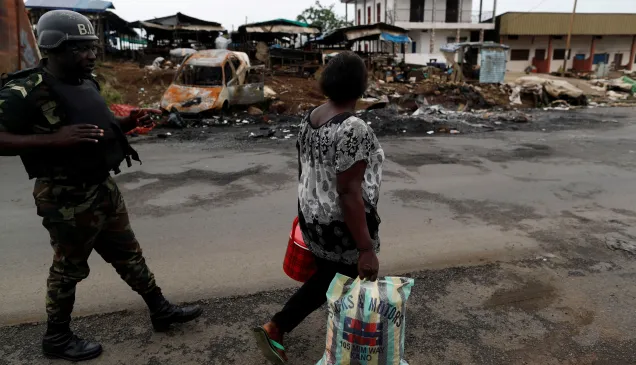Desertification affects 39% of Iraq’s territory. Very high temperatures are becoming more common, drought more frequent, and dust storms more intense. Rainfall has reduced in recent years and rivers dried up, which led to thousands of dunams (equivalent to about 2500 square metres) to turn dry and yellow.
We have been living here for generations. These areas were marshes full of water and the lands were fertile. We used to farm all year. Today it’s a total desert,” said Riyadh Al Ghazali one of the tribal leaders in Al Qadasiya district.
Communities residing in areas once known for growing rice and wheat are now struggling to survive. Al-Miskhab in Najaf governorate has always been famous for growing amber rice, a special type known for its distinctive aroma. “Amber rice is considered one of the finest types of rice in the world. Nothing can compare to it; it has a unique taste and smell,” said Iyad Muhsen one of the famers in Al-Mishkhab.
Food production in Iraq is based on smallholder agriculture, which traditionally has met the needs of its population. However over past years the sustainability of the agricultural sector has been undermined by many factors, including conflict, climate change, and water scarcity.
Iraq is an agricultural country practicing mainly rain-fed agriculture, severe drought, desertification, and the lack of alternative water resources has led to a drastic reduction in the planting of amber rice. Authorities and residents predict this famous Iraqi rice will no longer exist if these conditions continue.
“The land dedicated to growing rice in Najaf decreased from over 230,000 dunams to 5,000-6,000 dunams and most of what’s grown today is not even amber rice as it needs a lot of water,” said Muhanad Saree, a rice-mill owner.
Farmers are fatigued and feeling hopeless. They are slowly and painfully losing their source of income, their cattle are dying, and they are forces to leave their lands and migrate to urban areas in search of alternative source of income. “Our source of income comes from farming and livestock and both are gone. That's why our children left and the area is full of abandoned houses,” said Bassem Karim.
Farmers in Iraq made it clear that environmental and climate factors are making their lives harder. “It’s painful for us to see how dry our lands have become. We are even psychologically affected, frustrated, and don’t know what to do,” said Bassem Karim, a farmer who has a master’s in economics and refuses to leave his land.
The, ICRC along with our partners the Iraq Red Crescent Society, works to alleviate water stress by rehabilitating water pumping and treatment stations, piped networks, and irrigation systems. We are also supporting hundreds of farmers with cash assistance to help restore their livelihoods.
The growing threat of climate change combined with the lasting effects of conflicts in Iraq have weakened the state’s capacity to maintain infrastructure or support agriculture. The compounded effect of conflicts and the climate crisis are creating new urgent needs for most vulnerable groups and its crucial today to mobilize greater support to help people cope with and adapt to climate change in Iraq and other fragile states.
Download this footage from the ICRC Video Newsroom
For more information, please contact:
Hiba Adnan (Baghdad) Hiadnan@icrc.org +964 790 191 6927
Imene Trabelsi (Beirut) itrabelsi@icrc.org+961 3 138 353
Jason Straziuso (Geneva) jstraziuso@icrc.org + 00 41 79 949 35 12




